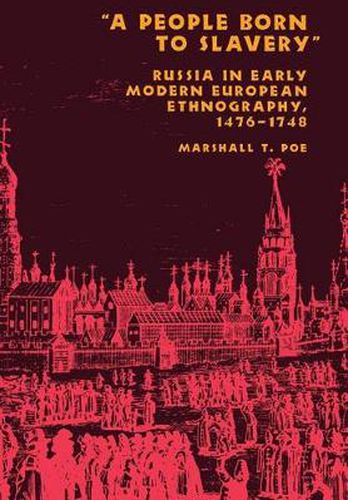Readings Newsletter
Become a Readings Member to make your shopping experience even easier.
Sign in or sign up for free!
You’re not far away from qualifying for FREE standard shipping within Australia
You’ve qualified for FREE standard shipping within Australia
The cart is loading…






Russia has been viewed for centuries by many Americans and Europeans, as a despotic country in which people are inclined to accept suffering and oppression. This study traces the roots of today’s perception of Russia to the eyewitness descriptions of 16th- and 17th-century European travellers. His account - which offers an extensive review of early modern European writings about Russia - explores how the image of Russian tyranny took hold in the popular imagination and eventually became the basis for the notion of Oriental Despotism first set forth by Montesquieu. Marshall Poe carefully assesses the reliability of these primary sources, arguing that although the foreigners exaggerated the degree of Russian slavery , they accurately described their encounters and correctly concluded that the political culture of Muscovite autocracy was unlike that of European kingship. With his findings, Poe challenges the notion that all Europeans projected their own fantasies onto Russia. Instead, his evidence suggests that many early travellers produced, in essence, reliable ethnographies, not works of exotic Orientialism .
$9.00 standard shipping within Australia
FREE standard shipping within Australia for orders over $100.00
Express & International shipping calculated at checkout
Russia has been viewed for centuries by many Americans and Europeans, as a despotic country in which people are inclined to accept suffering and oppression. This study traces the roots of today’s perception of Russia to the eyewitness descriptions of 16th- and 17th-century European travellers. His account - which offers an extensive review of early modern European writings about Russia - explores how the image of Russian tyranny took hold in the popular imagination and eventually became the basis for the notion of Oriental Despotism first set forth by Montesquieu. Marshall Poe carefully assesses the reliability of these primary sources, arguing that although the foreigners exaggerated the degree of Russian slavery , they accurately described their encounters and correctly concluded that the political culture of Muscovite autocracy was unlike that of European kingship. With his findings, Poe challenges the notion that all Europeans projected their own fantasies onto Russia. Instead, his evidence suggests that many early travellers produced, in essence, reliable ethnographies, not works of exotic Orientialism .